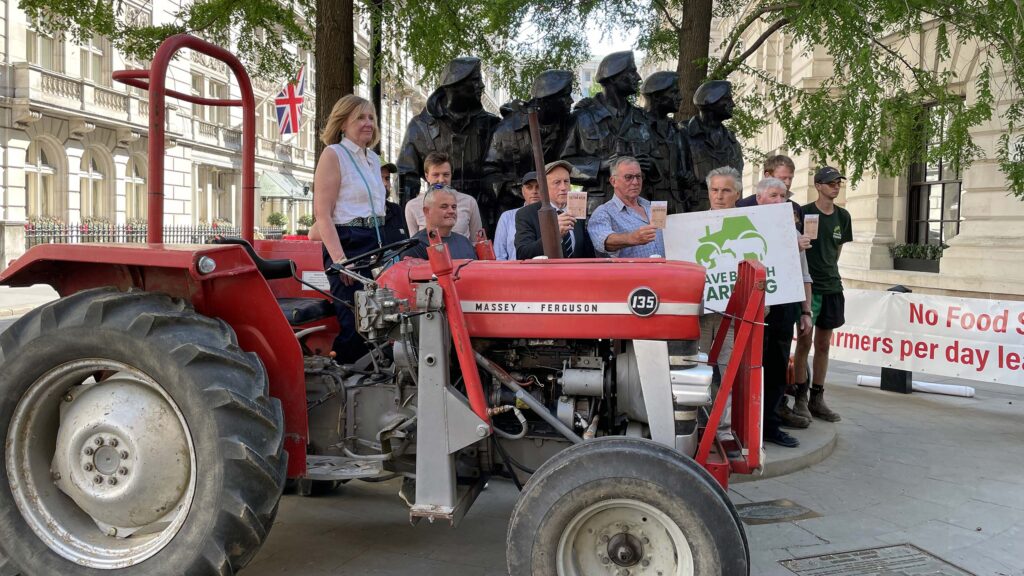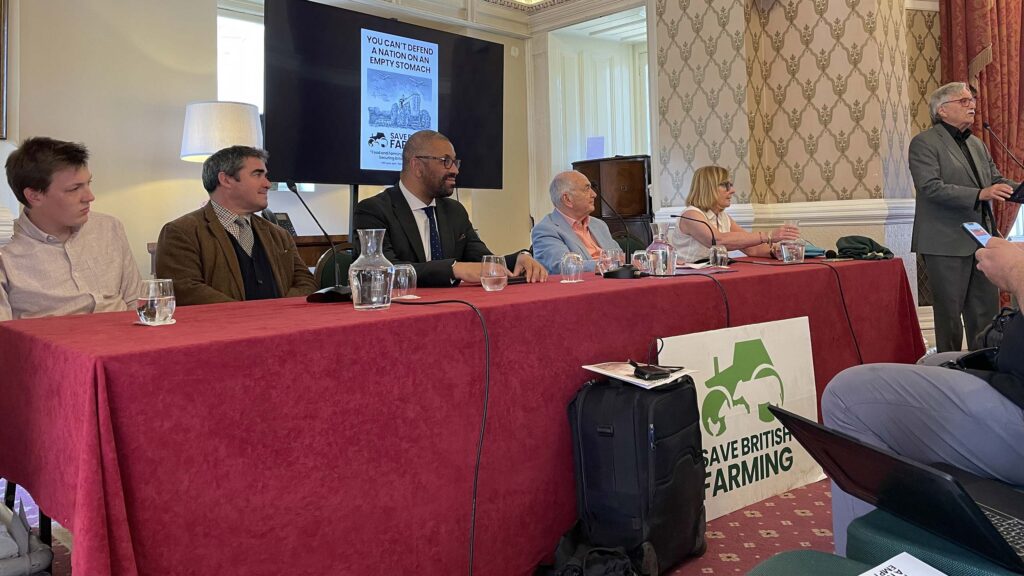Save British Farming warns of severe food supply disruption
 Campaigners outside the event © MAG/Albie Matthews
Campaigners outside the event © MAG/Albie Matthews Amid rising concerns over food shortages, critics are urging the UK government to adopt a wartime approach to safeguard the nation’s food security.
At an event organised by the campaign group Save British Farming, farmers and industry experts suggested that, without immediate action, the country could face severe disruption to food supplies.
See also: NFU and green groups unite to oppose farm budget cuts
Former foreign secretary James Cleverly told the event at the National Liberal Club in Westminster on Tuesday (29 April) that the government was underestimating the potential impact of food supply disruptions.
“I do worry that this government is really blasé about food and farming, because it cannot envisage a circumstance where there is even a moderate disruption of UK accessibility to core foods, particularly carbohydrates,” Mr Cleverly said.
“Voters will go hungry, and then they’ll get angry, and then they will turn on the government.”

James Cleverly, third from left, and other speakers at the event © MAG/Albie Matthews
Liz Webster, the founder of Save British Farming, organised the event, where farmers parked vintage tractors outside the National Liberal Club and held World War II ration books up to symbolise fears of a return to severe shortages.
A banner hung outside the club, next to a war memorial, read: “No food security. No national security. 13 farmers per day are leaving the industry. Ration books are coming.”
Ms Webster expressed grave concerns about the UK’s reliance on imports and the lack of a coherent food production strategy.
“We are sleepwalking into a warlike situation where people had to euthanise their pets,” she said, referencing the “great pet massacre” of 1939, when cats and dogs were put down in their thousands to save on food.
“The government needs to have a rethink about a food production plan. Would you rather be under-prepared or prepared for a war?” she asked.
National security risk
Inside the club, Prof Anthony Glees, a historian and security expert, framed the issue as one of national security.
“A nation that cannot feed itself cannot fight a war. A nation that is so reliant on imported food is extremely vulnerable to blackmail from those who supply food,” he said.
He also noted that food security had been dangerously neglected by successive governments, leaving the UK vulnerable at a time when Europe is facing growing instability.
“This disregard for the national security implications of our farming industry has put us in an extremely vulnerable position,” he added.
Cheap imports
Dr Clive Black of Shore Capital, a voice from the UK food manufacturing and retail sector, highlighted the country’s reliance on cheap imports.
“We are a nation that likes cheap food. We need to reinvest in this industry to make it sustainable. Why on earth would we need to buy chicken from America?”
He stressed the importance of using local expertise to support British farming.
Echoing this sentiment, Mr Cleverly pointed out that, while the UK might never be a large-scale food producer, it could leverage its technological strengths to increase productivity.
“We have boffins across the country in the major universities who can innovate tech to produce more food for us and globally,” he said.
